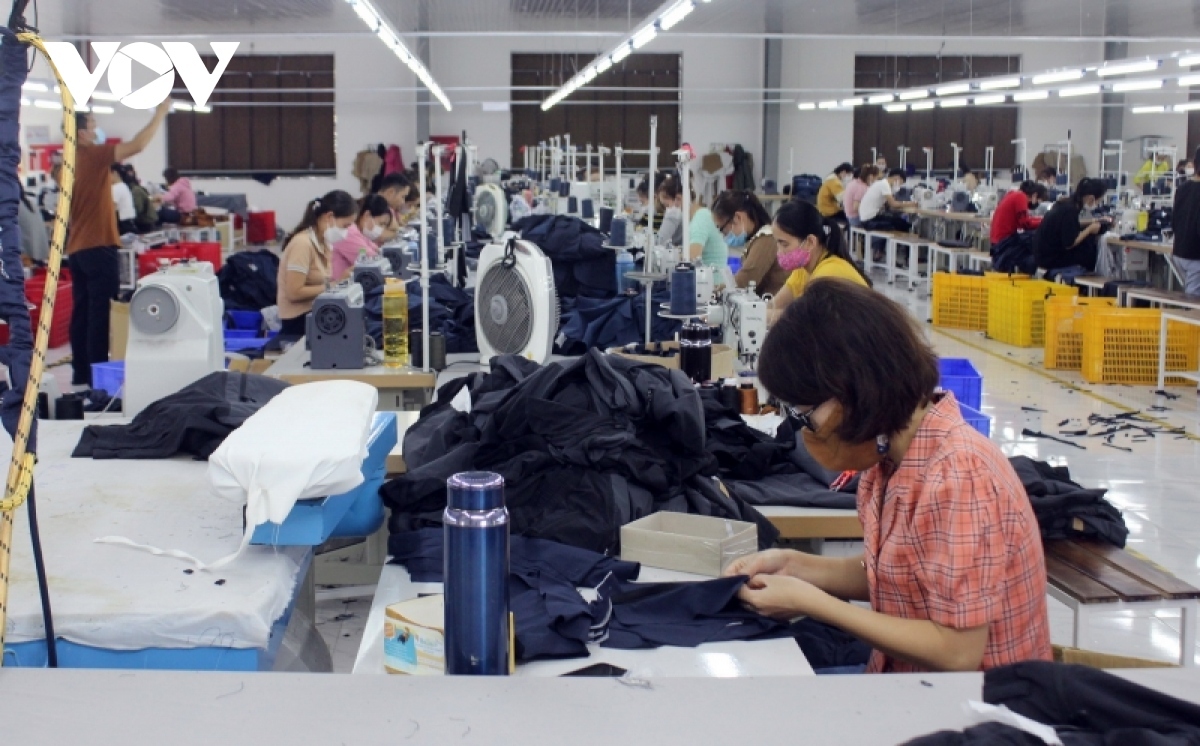Businesses seek to retain employees in face of export order shortages
VOV.VN - Vietnamese firms are enduing a shortage of export orders and are therefore trying to retain employees in the initial months of the new year, a period which is usually considered the off-peak production season.

Since the fourth quarter of 2022 many labour intensive industries such as garments, footwear, wood processing, mechanics, and the support industry have all struggled due to a lack of export orders. This gloomy situation is expected to last through the first quarter, potentially even into the second quarter, of the year, a situation which will force businesses to introduce solutions in a bid to ensure employees’ rights.
At Dong Anh Export Mechanical Instruments Joint Stock Company in Hanoi, nearly 1,000 employees have returned to work after a week-long break for the Lunar New Year that ended on January 27. Despite difficulties caused by the COVID-19 pandemic, the company managed to increase employees’ wages and bonuses by 10% in 2022 compared to the previous year. To motivate employees, the company directly paid VND500,000 in cash to everyone on the first working day of the year, whilst also providing them with free transportation both to and from production lines.
However, maintaining post-break production is always a hard nut to crack for any enterprise as many are enduring a lack of export orders. As a result, businesses are typically forced to use their contingent fund to retain employees. As a consequence of this increased expenditure, the fund at many firms is running out.
“The number of laid-off employees due to the lack of orders in the first and second quarters of 2023 is expected to decrease, and this depends a lot on economic development, especially export orders,” says Ngo Xuan Lieu, director of the National Center for Employment Services under the Ministry of Labour, Invalids and Social Affairs.
Experts say the labour market is facing a shortage of jobs due to the impact of the global market. Statistics show by the end of January, as many as 528 businesses had their orders axed, focusing on the garment, leather and footwear, wood processing, mechanics, and support industries. Most notably, orders for footwear, textiles, wood processing, and the support industry decreased by 20% to 30%, 25% to 30%, 70%, and 50%, respectively.
Furthermore, nearly 640,000 employees, accounting for approximately 4% of the total number of employees in enterprises, had their jobs affected. More worryingly, few people that lost their jobs have since gone on to find new jobs. Meanwhile, according to calculations, firms are expected to recruit nearly 400,000 employees after the festive break, a figure which is much higher than the number of workers who have lost their jobs or who have been put on leave.
To support employees, the Vietnam General Confederation of Labour has issued a resolution to provide allowances worth VND1 million to VND3 million for each laid-off employee, or those who have had their working time cut. The implementation of the resolution is scheduled to last until the end of March, with more than 600,000 employees expected to benefit from the programme.
Along with allowances, experts suggest that businesses re-train employees as a way of improving their skills to match employment trends.
Unpredictable changes occurring worldwide, including the risk of a global recession and the protracted Russia-Ukraine conflict, are therefore exerting an adverse impact on the national economy and the labour market, with the situation anticipated to subside in the second half of the year. Amid this context, it is necessary to implement policies to retain skilled human resources and stabilise the labour market for the recovery period.
